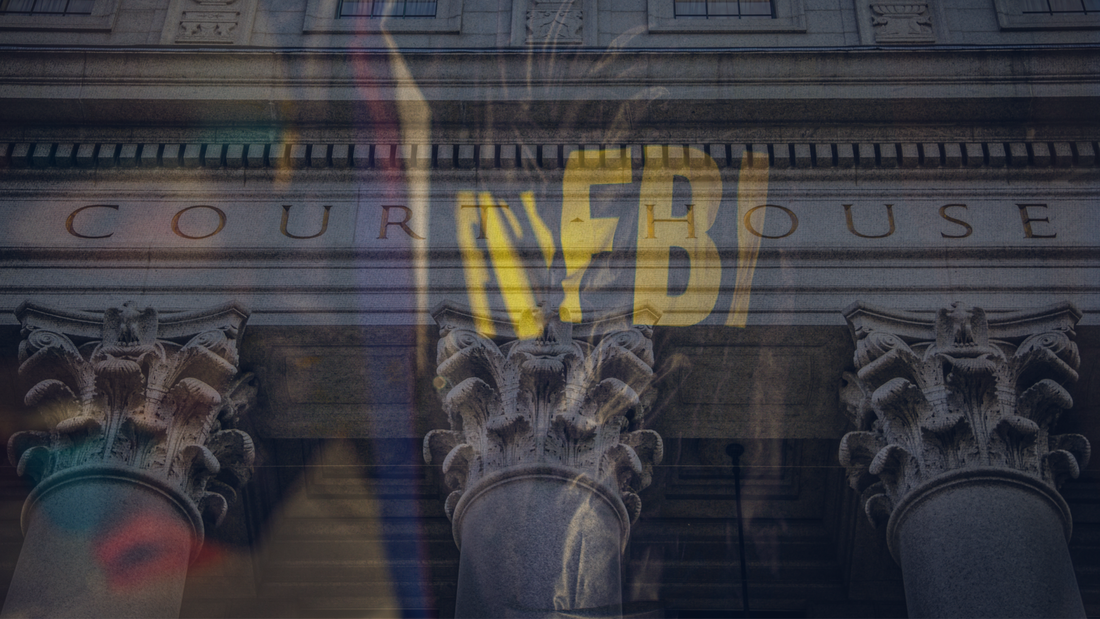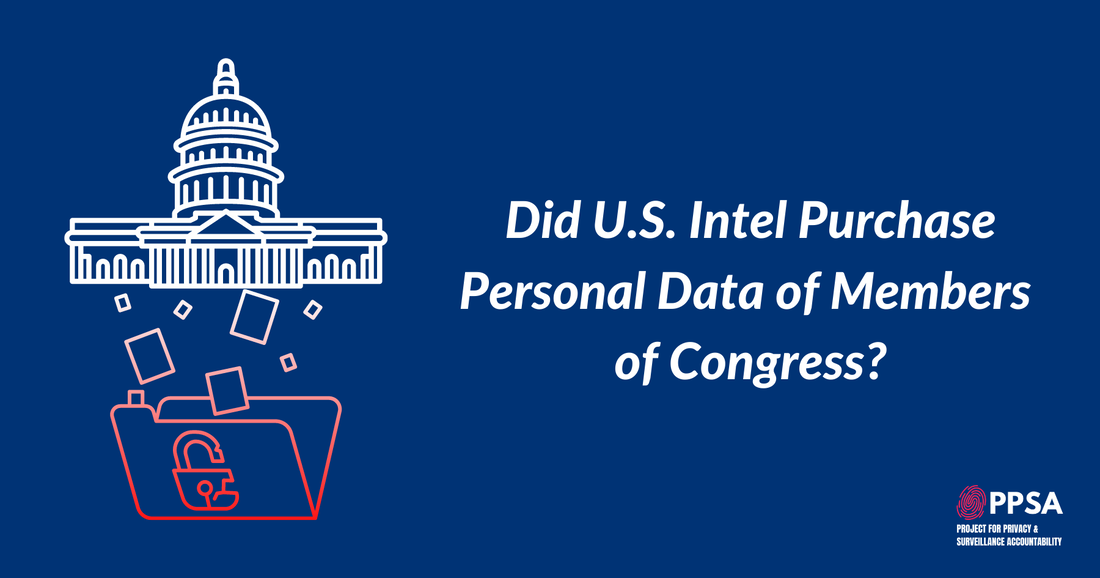|
PPSA today announced the filing of a lawsuit to compel the FBI to produce records about the possible use of FISA Section 702 authority – enacted by Congress to enable surveillance of foreign targets on foreign soil – for political surveillance of Americans at home.
Activists on the left and the right have long suspected the FBI uses surreptitious means to spy on lawful protests and speech. Those suspicions were confirmed when a FISA court decision released in 2022 revealed that government investigators had used Section 702 global database to surveil all 19,000 donors to a single Congressional campaign. Acting on this concern, PPSA submitted a FOIA request to the FBI in February seeking all records discussing the use of Section 702 or other FISA authorities to surveil, collect information related to, or otherwise investigate anyone who attended:
The FBI almost immediately responded to PPSA that our FOIA request “is not searchable” in the FBI’s “indices.” The response also informed us that the FBI “administratively closed” our request. The FBI did not dispute that PPSA’s FOIA request reasonably described the requested records. This should have, under the FOIA statute, triggered a search requirement, but the FBI ignored it. The self-serving excuse that limitations to the FBI’s Central Records System overlooks the plentiful databases and search methods at the fingertips of one of the world’s premier investigative organizations. After a fruitless appeal to the Department of Justice’s Office of Information Policy, exhausting any administrative remedy, PPSA is now suing in the U.S. District Court of the District of Columbia to compel the FBI to produce these documents. We’ll keep you informed of any major developments. The Colorado Supreme Court issued a 5-2 ruling that leaves an urgent privacy question wreathed in a cloud of ambiguity. As a result, Americans must worry that merely being in the same location as someone who might have done an internet search for suspicious material could end up with their own search data being examined by the police.
So-called “reverse warrants” are a powerful new type of search warrant enabled by the collection of Americans’ private data. Reverse warrants allow the police to sift through the search histories of thousands of people. They come in two types: geofence warrants, which allow police to identify people whose devices were in a certain area at a certain time, and reverse keyword warrants, which allow police to identify who searched certain keywords, phrases, or addresses online. These warrants and their underlying technologies allow police to track any person and search through their data. Instead of developing suspicions about a person based on factual evidence and then applying for a warrant to search that specific person – as required by the Fourth Amendment – reverse warrants involve looking through the search history or location history of many innocent people in the hopes of finding a suspect. Reverse warrants exist in legal limbo. There is little precedent or written law that govern this new form of data analysis. Accordingly, some courts have treated reverse warrants as they would any standard warrant. Seymour v. Colorado is the first case to address the constitutionality of reverse warrants. This case springs from a particularly heinous crime – an arson that killed a family of five. Two months later, the Denver Police Department obtained a reverse keyword warrant. As a result of the warrant, Google was forced to hand over the data of eight people, five of whom had Colorado-based IP addresses that had searched for the location of the arson in a two-week period before the crime. Three suspects were eventually charged. One of them, Gavin Seymour, sued to suppress evidence obtained by the warrant on constitutional grounds. The court held that “Seymour has a constitutionally protected privacy interest in his Google search history,” and that “Seymour’s Google search history implicates his right to freedom of expression.” The court also found that law enforcement obtained and executed the warrant in good faith, so the evidence shouldn’t be suppressed under the exclusionary rule. Thus the court acknowledged the serious constitutional issues at play and still treated the reverse warrant as if it was just an ordinary search. The court stated that “the warrant required individualized probable cause and that its absence here rendered the warrant constitutionally defective.” Yet, somehow, it was still admissible evidence. Five innocent people had their data searched. Another five innocent people were murdered in a fire. There is a lot at stake in this case, and a lot to unpack. Does a search of Google search histories by a given address satisfy the Constitution’s requirement for a particularized search? Can probable cause be asserted when the identity of the suspect is unknown? Could digital bystanders have evidence used against them from a search result unrelated to this particular crime? Perhaps this case will advance to the U.S. Supreme Court, which could take this opportunity to articulate boundaries and rules for future searches. We’ve seen, however, a time lag in the Court’s addressing of new technologies. Congress should consider taking measures to protect privacy in reverse warrants before the Supreme Court is forced to weigh in. The Project for Privacy and Surveillance Accountability today filed a federal lawsuit against the Department of Justice and the FBI for their failure to make a lawful response to a Freedom of Information Act (FOIA) request for records in relation to opinions issued to the Bureau by two secret courts.
On June 28, PPSA submitted a FOIA request seeking decisions, orders, and opinions from the Foreign Intelligence Surveillance Court (FISC), and its superior, the Foreign Intelligence Surveillance Court of Review (FISCR). PPSA also requested agency records concerning regulations, policies, training, and clearance levels for individuals with access to FISC and FISCR opinions. The FBI took two swings at responding to PPSA’s request, missing the ball each time. In its first response, the FBI refused to conduct any searches for court opinions because, it claimed, “the above referenced subject is not searchable” in one particular FBI index – the Central Records System – ignoring the fact that the FBI maintains several other databases for storing records. The FBI simply refused to consider those locations, explaining only that its Central Records System “is not arranged in a manner that allows for the retrieval of information in the form you have requested.” “In other words, the Federal Bureau of Investigation – which submits surveillance warrants for Americans under Title I of the Foreign Intelligence Surveillance Act before FISC – said with a straight face that it cannot locate court opinions that directly concern it,” said Gene Schaerr, general counsel of PPSA. “Even Inspector Clouseau would be embarrassed by a response like that. “Since when does locating easily identifiable records – including judicial decisions the FBI is bound to read and obey as drafted – become such an overwhelming burden?” Schaerr said. “The FBI is being facetious.” In the FBI’s second response, responding to the request for policies governing who within the FBI has access to FISC decisions, the Bureau completely ignored its statutory obligations under FOIA. Although FOIA requires the FBI to search for all responsive records, the FBI stated that it stopped looking for any records after locating the first record – a heavily redacted document, “Foreign Intelligence Surveillance Act and Standard Minimization Procedures Policy Guide.” According to the FBI, that “fulfilled” its obligation. Today’s lawsuit that PPSA filed in the U.S. District Court of the District of Columbia demonstrates otherwise. “We hope the court will see that the FBI is treating the FOIA statute as a shell game in which litigants will tire out and leave them alone,” Schaerr said. “We won’t leave them alone. We ask the court to demonstrate to the Bureau that it is unacceptable to ignore even the minimum requirements of the law.” FBI Decides FOIA Doesn’t Require Search for More than One Document on Secret Court Opinions12/5/2022
In a new low for the FBI’s processing of Freedom of Information Act (FOIA) requests, the Bureau now states it believes it does not need to keep searching for records after locating a single potentially responsive record. This is contrary to both the FOIA statute and common sense. If the FBI were correct, every FOIA requester would be entitled to just a single record, and countless government activities would remain hidden from the public.
This is the latest disappointing response from the FBI. We recently reported that the FBI asserts – in response to our request for FBI records of opinions from the Foreign Intelligence Surveillance Court (FISC) and its court of review – that it cannot locate these court opinions on its revised computer system. As excuses go, this is a dog-ate-my-homework level of sophistication. Now we’re forced to appeal the FBI’s non-response response to our FOIA request for information on all the Bureau’s records on FISC opinions. The FBI’s hungry dog is still at work: they’ve responded to our request by also stating that it located a single record and then stopped searching. In the FBI’s mind, it “expeditiously” released “documents” that fulfilled PPSA’s request. But there were no “documents,” plural. The FBI produced only one document, with 40 pages of this one document redacted to the point of unintelligibility. And the FBI didn’t even try to find anything else. In our administrative appeal, PPSA told the FBI’s Director of Information Policy: “Discontinuing a search after finding a single, previously-released record is evidence of a search that was not reasonably calculated to uncover all responsive documents. This is made clear by the FBI’s statement that PPSA could also request an ‘additional search for records.’ That is not PPSA’s job; PPSA already submitted a request for all responsive records.” As for the redactions in this one document, PPSA has demanded that the FBI provide it additional information to justify the redactions. When an agency redacts an entire document, requesters like PPSA are at an obvious disadvantage in trying to challenge those withholdings. To recycle a famous legal quote, the government is “holding a grab bag and saying, ‘I’ll give you this if you can tell me what’s in it.’” We fully expect the FBI to be disingenuous. But we are hopeful that the FBI’s Director of Information Policy will at least be embarrassed by the thinness of the FBI’s recent excuses. The Project for Privacy and Surveillance Accountability today filed a Freedom of Information Act (FOIA) lawsuit against the Office of the Director of National Intelligence (ODNI) over the refusal of the government to turn over records concerning U.S. intelligence community purchases of the private digital data of American citizens.
The government’s stonewalling continues well past its failure to meet any of the deadlines required by the FOIA statute. It also flies in the face of a pledge made by Director of National Intelligence Avril Haines (1:17:05 mark) in her Senate confirmation hearings on Jan. 19, 2021. When Sen. Ron Wyden, (D-OR) asked about informing the American people about purchases of their data, Haines responded: “I would seek to try to publicize, essentially, a framework that helps people understand the circumstances under which we do that and the legal basis that we do that under.” Haines further promised to provide transparency “so people have an understanding of the guidelines under which the intelligence community operates.” In response, PPSA requested “all agency records created, altered, sent, or received in preparation for any public disclosure, as contemplated by Director Haines,” including:
The government acknowledged receiving PPSA’s initial FOIA request on June 2, 2021. PPSA inquired about the lack of a substantive response more than one year later. On June 23, 2022, ODNI responded: “we cannot speculat[e] on a specific response date.” More than thirty business days later, after the ODNI failed to indicate whether it will fully comply with the FOIA request, PPSA decided to file suit. “This is a golden opportunity for Director Haines to demonstrate that the intelligence community will live up to her promise to provide at least some transparency,” said Gene Schaerr, PPSA general counsel. “As Avril Haines herself stated, the American people deserve to know the circumstances in which the intelligence community purchases our personal data and the legal basis for doing so. “Director Haines promises to ‘publicize’ that legal basis. I hope she does, instead of allowing her office to continue to stonewall.” The Project for Privacy and Surveillance Accountability today announced the filing of a lawsuit in federal court against the National Security Agency, the Central Intelligence Agency, the U.S. Department of Justice, and the Office of the Director of National Intelligence, to compel the release of documents pertaining to the possible purchasing of the personal information of more than 100 current and former Members of the House and Senate Judiciary Committees from private data brokers.
The lawsuit, filed in the United States District Court for the District of Columbia, seeks records relating to data purchases of these current and former lawmakers that include Jerrold Nadler, Chairman of the House Judiciary Committee, Ranking Member Jim Jordan, Sen. Dick Durbin, Chairman of the Senate Judiciary Committee and Ranking Member Sen. Chuck Grassley. The list includes many leading lights of both parties, from current Vice President Kamala Harris to Florida Gov. Ron DeSantis, both former Members of Congress. These government agencies responded over the summer 2021 to PPSA’s FOIA request with Glomar responses, a judicially invented doctrine that neither confirms nor denies that such records exist. At the time, Gene Schaerr, PPSA general counsel, responded: “The government doesn’t want to even entertain our question. What do they have to hide?” He added: “This troubling refusal gives all the more reason for Congress to pass the Fourth Amendment Is Not for Sale Act, which would ban such surveillance from purchased data. If Vice President Harris and Gov. DeSantis are potentially having their rights violated, imagine how little protection you and I have.” Court Sets Sept. 15 for Oral Arguments in Appeal Oral arguments in a federal lawsuit against six government agencies over their stonewalling about “unmasking” and surveillance of the 2016 presidential campaign and transition has been set for September 15.
The general counsel of the Project for Privacy and Surveillance Accountability had filed the appeal in January before the U.S. Court of Appeals for the D.C. Circuit. The lawsuit is challenging the refusal of the agencies to respond to its Freedom of Information Act (FOIA) requests seeking information on the surveillance of campaign and transition officials in the 2016 election. The FOIA requests filed with the Department of Justice, the FBI, CIA, National Security Agency, Department of State and the Office of the Director of National Intelligence sought records regarding the unmasking and “upstreaming,” or the interception of internet communications, of people, including Members of Congress, who were affiliated with the Trump campaign and transition. The agencies responded by issuing “Glomar” responses that refuse to confirm or deny the existence of such records. Gene Schaerr, PPSA general counsel, who filed the appeal, said: “We ask the court to understand that judicial doctrine is being distorted into a cover-up of alarming misbehavior by the U.S. intelligence community. Americans deserve to know if our government has used its sweeping surveillance authority under the Foreign Intelligence Surveillance Act as a political weapon wielded against the campaign and presidential transition team of an opposing party. “However you feel about the candidate in question, Donald Trump, what was done to him in 2016 can be done by an administration of either party in a future election,” Schaerr said. |
Categories
All
|








 RSS Feed
RSS Feed